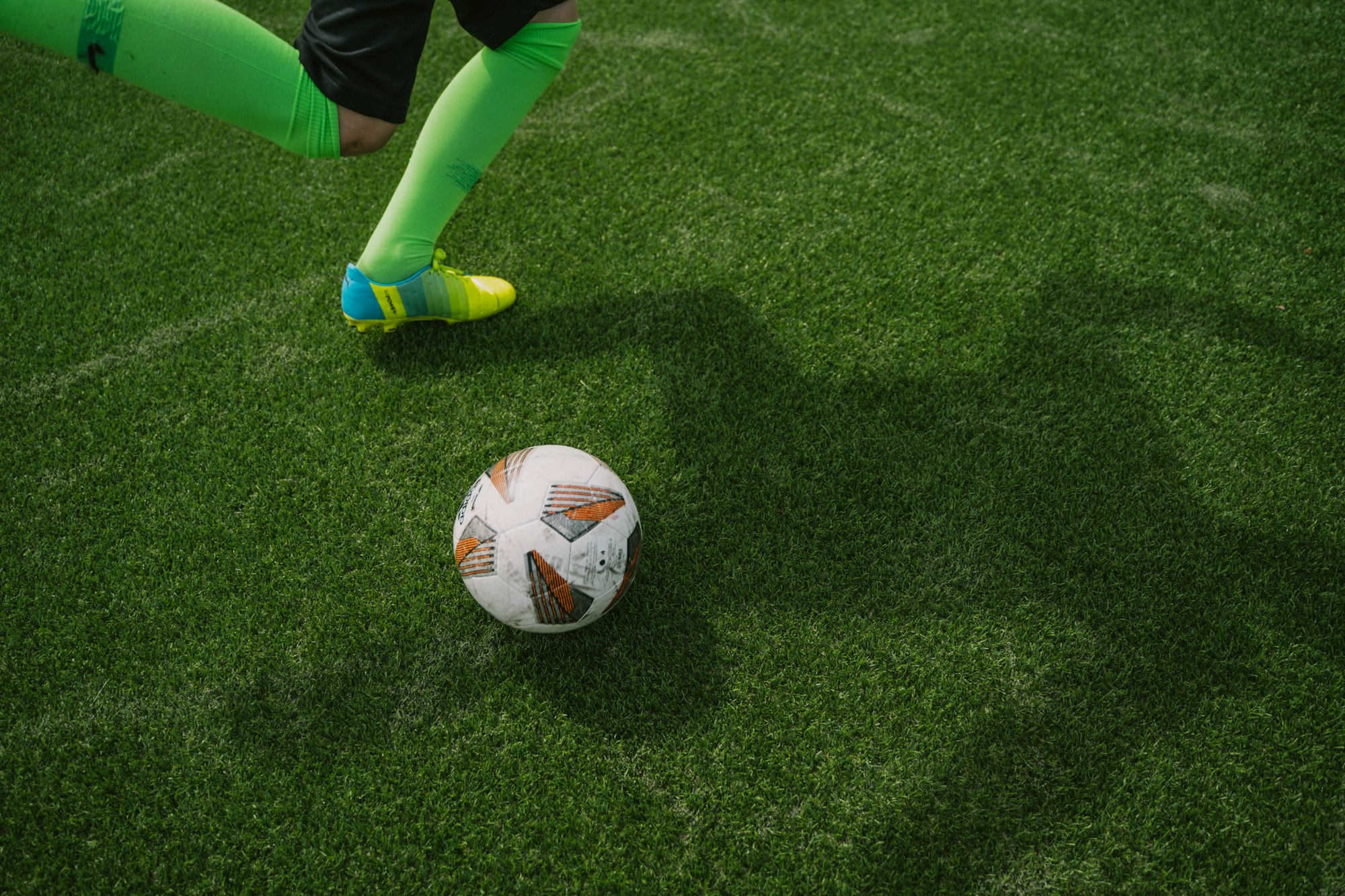Legendäres Wiedersehen beim DSWV-Sommerfest: Weltmeister Rudi Völler im Talk mit Weißbier-Waldi
Rudi Völler und Waldi stoßen beim DSWV-Sommerfest nach 16 Jahren wieder auf ein Weißbier an. Mehr Videos von der Veranstaltung finden Sie hier.
Berlin – Beim Sommerfest des Deutschen Sportwettenverbandes (DSWV) hat Moderator Waldemar Hartmann mit Welt- und Vizeweltmeister Rudi Völler, dem hessischen Innenminister Peter Beuth (CDU) und DSWV-Präsident Mathias Dahms eine Bilanz unter die abgelaufenen Bundesliga- und Champions-League-Spielzeiten gezogen und die weiteren sportlichen und wirtschaftlichen Perspektiven des deutschen Fußballs erörtert. In “Waldis DSWV-Club” demonstrierten Hartmann und seine Gäste eine Stunde lang geballten Fußball-Sachverstand. Das erneute Aufeinandertreffen von Völler und Hartmann wurde mit Spannung erwartet, handelte es sich doch um die Neuauflage des legendären “Weißbier-Interviews” vom 6. September 2003, als sich der damalige Teamchef der deutschen Nationalmannschaft Völler vor den Augen Fernseh-Deutschlands ein leidenschaftliches Rededuell mit Hartmann lieferte.
Wie damals zeigte sich Rudi Völler im Tandem mit Hartmann als meinungsstarker Talkgast mit klaren Haltung und Sprache – etwa zur Idee einer geschlossenen „European Super League” der größten Vereine des Kontinents:
„Eines darf niemals passieren: Es wäre das Todesurteil des Fußballs, wenn man sich nicht mehr sportlich für die internationalen Wettbewerbe qualifizieren müsste. Das kann keiner wollen. Wer das möchte, der muss schwachsinnig sein.”
Anderen Innovationen im europäischen Fußball steht Völler aufgeschlossener gegenüber. Beim Videobeweis habe er selbst sich eines Besseren belehren lassen:
„Beim Videobeweis war ich zu Beginn skeptisch und ich wurde dann in meiner Skepsis bestätigt. Im ersten halben Jahr empfand ich das, was entschieden wurde, als Katastrophe. Aber bei der Weltmeisterschaft 2018 funktionierte es wunderbar. Und mittlerweile bin ich von meiner anfänglichen Meinung auch ein bisschen abgekommen: Mittlerweile hilft der Videobeweis mehr, als dass er schadet.”
Und deutschen Fußballfans spendet Völler Mut, wieder auf Erfolge der Nationalmannschaft und im europäischen Vereinsfußball hoffen zu dürfen:
„In Deutschland wird gleich immer alles zu Grabe getragen, wenn wir mal eine schlechte Weltmeisterschaft spielen. Aber der deutsche Fußball ist natürlich nach wie vor gut. Wir sind immer noch im Rennen.”
Von genau dieser Spannung und diesen Emotionen lebe auch die Sportwette, ergänzt DSWV-Präsident Mathias Dahms:
„Viele Menschen wetten auf Sportereignisse besonders gerne während des Spiels, das ist die so genannte Live-Wette. Beim Sportwetten geht es in erster Linie darum, Fan zu sein, mitzufiebern und einen kleinen Gewinn einzustreichen, wenn der eigene Verein sein Spiel gewinnt. Und weil es ohne Sport keine Sportwette gibt, haben die Mitgliedsunternehmen des DSWV im vergangenen Jahr auch rund 50 Mio. Euro in das Profisportsponsoring investiert. Zusätzlich zahlen die Sportwettenanbieter jährlich rund 400 Mio. Euro Sportwettsteuer, bei der wir uns wünschen würden, wenn ein Teil davon zweckgebunden in die Förderung des Breitensports fließen würde.”

Zur Verstetigung der Steuer- und Sponsoringeinnahmen in den kommenden Jahren ist es zudem von zentraler Bedeutung, dass die Bundesländer endlich die deutsche Glücksspielregulierung grundsätzlich reformieren und den Anbietern Rechtssicherheit verschaffen. Bis heute sind die Sportwettenanbieter in Deutschland aufgrund des gescheiterten Konzessionsverfahrens gezwungen, in einer rechtlicher Grauzone zu agieren. Die Ministerpräsidenten verhandeln derzeit über eine neue Glücksspielregulierung ab 2021. Peter Beuth, Hessischer Minister des Innern und für Sport, bekräftigte diesbezüglich abermals den Willen seiner Landesregierung, den gescheiterten, von Verboten und Restriktionen geprägten Glücksspielstaatsvertrag zu überwinden:
„Wir in Hessen hätten gerne bereits vor einigen Jahren eine Veränderung herbeigeführt, die den ganzen Bereich des Glücksspiels auf solidere Füße gestellt hätte. Ich bin glücklich, dass wir es jetzt in einem ersten Schritt ermöglichen, dass Sportwetten ab dem 1. Januar 2010 legal angeboten werden können. Wir sind im Land Hessen gemeinsam mit Schleswig-Holstein aber der Auffassung, dass wir auch das Online-Casinospiel ermöglichen müssen, um den Markt erfolgreich zu regulieren.”

Der DSWV unterstützt Beuth in seinen Reformbemühungen. Aus Sicht der Sportwettenanbieter taugt der Dritte Glücksspieländerungsstaatsvertrag lediglich als Übergangslösung bis 2021. Es handelt sich um einen kleinen, jedoch nicht ausreichenden Schritt, um den deutschen Sportwettenmarkt zu regulieren. Zwar ist es gut, dass die Länder nach sieben Jahren Regulierungschaos endlich ein Erlaubnissystem für Sportwettenanbieter etablieren. Problematisch ist jedoch, dass die ebenso unzeitgemäßen wie restriktiven Regelungen des Staatsvertrags bestehen bleiben: Die beliebte Live-Wette — etwa 60 bis 70 Prozent des Marktes — wird massiv eingeschränkt, pauschale Spiellimits willkürlich festgelegt. Hierdurch wird die lizenzierte Sportwette gegenüber dem Schwarzmarkt unattraktiv. Im digitalen Zeitalter sind unlizenzierte Angebote jedoch stets nur einen Klick oder eine Wischgeste auf dem Smartphone entfernt. Wenn nun die Verbraucher in Scharen hierhin abwandern, hat der Staatsvertrag seine Ziele verfehlt.
Über den Deutschen Sportwettenverband
Der Deutsche Sportwettenverband (DSWV) wurde im Jahr 2014 von den führenden deutschen und europäischen Sportwettenanbietern in Berlin gegründet und versteht sich als öffentlicher Ansprechpartner, insbesondere für Politik, Sport und Medien. Alle Mitgliedsunternehmen verfügen über Lizenzen in EU-Mitgliedstaaten und streben eine Regulierung und Konzessionierung auch für den deutschen Markt an. Seit 2012 haben sie in Deutschland rund 2 Milliarden Euro Sportwettsteuern gezahlt. Die meisten Mitglieder sind auch als Sponsoren im deutschen Profisport aktiv.
